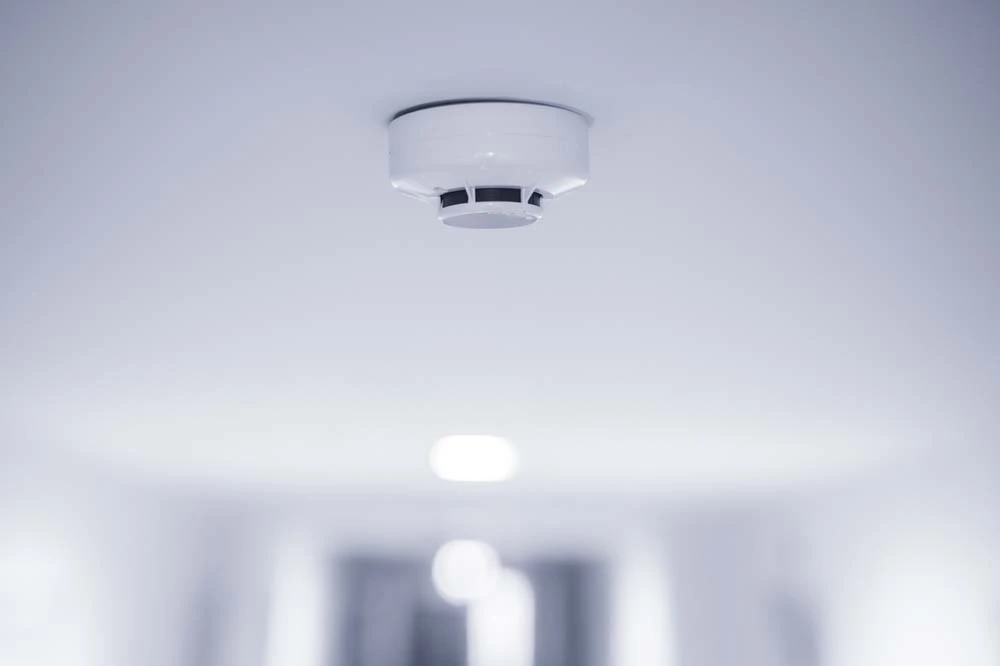If you’re planning to invest in Lighthouse Point short term rentals or preparing to launch your first Airbnb, understanding the rules, taxes, and requirements is important. Despite its small, residential feel, the city boasts increasing demand for vacation stays, making it a lucrative and highly sought-after market for hosts.
In the City of Lighthouse Point, a short term rental (STR) is a guest stay in a residential unit or group of units for six months or less. A residential unit can be in a condominium or cooperative, individually or collectively owned single-family, two-family, three-family, or four-family houses. This short term rental guide offers a comprehensive breakdown of everything needed for compliance, including local ordinances and licensing. It also highlights how partnering with professional short term rental management can ensure both profitability and peace of mind.
Whether you’re a property owner, an investor seeking to explore STR income, or an experienced host expanding your portfolio, this guide is designed to help you navigate the short term rental regulations Lighthouse Point has implemented for 2025.
Why Lighthouse Point is a Strong Market for Airbnb Rental Management
Lighthouse Point presents a lucrative market for short-term rental investors, characterized by steady booking potential, higher nightly rates, and longer average stays. This demand is driven by the city’s appeal as a high-demand vacation spot, waterfront residential neighborhoods, and convenient access to Pompano Beach, Fort Lauderdale, dining, and beaches.
However, to thrive in this market, success depends on achieving full compliance with the short term rental regulations Lighthouse Point, which was enacted to balance responsible hosting with resident protection.
Understanding the Lighthouse Point Short Term Rentals Regulations
The City of Lighthouse Point defines a short-term rental as a residential unit rented for periods of six (6) months or less.Before listing your company, it is important to understand all local ordinances that apply to STRs. Lighthouse Point has rules in place to maintain neighborhood peace, reduce nuisances, and ensure host accountability. 
Short Term Rental Licensing and Registration
All Lighthouse Point short term rentals must be registered with the city. Property owners must obtain an annual Transient Rental Certificate of Compliance for each dwelling unit to enable them to operate it as a short term rental. This Certificate for Transient Rentals is non-transferable by all means. When there is a transfer of ownership, the new owner must get a new Transient Rental Certificate for the short term rental.
A Certificate of Compliance is only valid for one year. Also, regardless of the date of issue, the certificates expire on September 30th of the following year.
Other requirements often include business tax receipt, resort tax certificate, Florida Vacation Rental Dwelling License, fire safety inspection, local response, and compliance with zoning rules. Additionally, your property must meet building and safety standards before approval.
Safety Requirements
To comply with local ordinances, properties are typically required to have smoke detectors in each room, carbon monoxide detectors, fire extinguisher, clearly marked emergency exits, and maximum occupancy rules. These rules help protect guests and limit liability for hosts.

Smoke Detector Requirements:
Property owners must install smoke detectors in the following areas:
- In all of the bedrooms/sleeping rooms.
- In the immediate proximity of the bedrooms, outside each separate sleeping area.
- On each additional story of the residence. Must have permission from the Building Department. In addition, property owners or agents must have an Inspection Certificate too.
Carbon Monoxide Detector Requirements:
Property owners must install carbon monoxide detectors in the following areas:
- In the immediate proximity of the bedrooms, outside each separate sleeping area.
- On each additional story of the residence. Must have permission from the Building Department. In addition, property owners or agents must have an Inspection Certificate too.
You may see the complete Owner Checklist for Transient Rental Inspections.
Noise and Nuisance Restrictions for Airbnb Rental Management
Lighthouse point is known for being peaceful and community-oriented. The city enforces noise restrictions, especially after 10PM, limits on gatherings, and parking regulations. Violations may result in fines or suspension of rental privileges. This is why many hosts partner with the best Airbnb management company Lighthouse Point to monitor guest behavior and maintain compliance.
Occupancy Limits for Airbnb Property Management
A short term rental unit’s maximum occupancy must not exceed either of the following limits:
- One person per 150 gross square feet of air-conditioned living space.
- There should be no more than two individuals per bedroom. The Florida Building code explicitly defines a bedroom as accommodating two people.
- The maximum occupancy per short term rental shall be limited to eight transient occupants in the RS-3 and RS-5 zoning districts.
- In all other zoning districts and developments primarily developed with more than two-family dwelling units, the maximum occupancy shall be limited to sixteen occupants per short term rental.
Tax Requirements for Airbnb Management
Under Ordinance No. 2022-0996, taxes that property owners must collect and remit are state sales taxes, county tourist development taxes, and Local STR taxes. A professional Airbnb rental management company can help ensure timely tax compliance so you avoid penalties.
Zoning Rules for Lighthouse Point Short Term Rentals
Zoning compliance plays a major role in the short term rental regulations Lighthouse Point enforces. Some residential zones have restrictions on rental frequency or require a minimum stay length.
Working with an experienced Airbnb management company Lighthouse Point helps ensure your rental remains compliant year-round.
How to Submit an Application for Short Term Rental Management Lighthouse Point
Since August 2025, the City of Lighthouse Point has been using the SmartGov system for all Transient Rental applications, including renewals and any changes. To apply or renew, you’ll need to submit everything online through the City of Lighthouse Point Public Portal.
To make sure your application goes smoothly, here’s a checklist of what you need.
Application and Payment Essentials
- The application must be completely filled out. Credit card payment is required.
Proof of Ownership and Required Registrations
- Something to prove you own the property (like the Recorded Deed or the BCPA Page).
- Documentation showing your registration for the Florida Department of Revenue Sales Tax, or a letter confirming you aren’t required to collect sales tax.
- Proof that you’ve registered with Broward County for the Tourist Development Tax.
- Your license from the Florida Department of Business and Professional Regulation as a Transit Public Lodging Establishment.
- A copy of the Transient Rental Agreement form you use.
Property Safety and Layout
- A Certified Property Survey. Make sure it was completed within the last year (12 months) before you submit your application.
- Exterior Sketch: This needs to be drawn to scale and clearly show every structure, the pool, fencing, all off-street parking spots, and where the trash containers are located.
- Interior Sketch: Also drawn to scale, showing the floor plan, clearly numbered bedrooms/sleeping rooms, all exits, where the smoke/carbon monoxide detectors are, and the location of fire extinguishers.
- A Multi-purpose Dry Chemical 2A:10B:C Fire Extinguisher. It must have a current inspection tag from a licensed fire inspection service.
- A Hard-Wired Smoke/Carbon Monoxide Detector. You must first get a permit from the Building Department for this and include an Inspection Certificate from a certified third-party company.
Other Important Items
- Power of Attorney: Only needed if a third party will be running the rental for you, the owner. This document must be signed by you, giving them official permission to manage the Transient Rental.
- A list of every venue and website where your vacation rental is advertised. If this list changes, you must let the City know within 30 calendar days.
- A signed Trespass Agreement. This is a specific form provided by the Lighthouse Point Police Department, and it authorizes the police to issue trespass warnings on your behalf as the property owner.
The Advantage of Professional Airbnb Property Management

Many investors struggle with compliance, guest communication, cleaning logistics, and marketing. That’s where an Airbnb Management Lighthouse Point provider comes in.
Here’s how a vacation rental property management can help your business:
Full Compliance with Local Ordinances
A knowledgeable Airbnb property management Lighthouse Point provider ensures your rental meets all requirements, including licensing, zoning, inspections, and safety rules. They monitor regulatory updates and ensure your listing never violates local ordinances, which can change yearly.
Guest and Emergency Support
A professional Airbnb rental management company handles guest screening, check-ins & check-outs, house rules enforcement, and damage reporting. This keeps your property protected without your constant involvement.
Optimized Pricing & Marketing
The right team uses dynamic pricing tools and optimized listing strategies to maximize occupancy and nightly rates on Lighthouse point vacation rental management. This is especially important in a competitive market like Lighthouse Point short term rentals.
Cleaning, Maintenance, and Inspections
With short term rental management lighthouse point, you get turnover cleaning, linen & supply restocking, ingoing home maintenance, and regular property inspections. This ensures great reviews and rebookings.
Why Choose Vacation Rental Property Management Providers
Partnering with an experienced, local-focused team, especially in handling Fort Lauderdale Property Management and Property Management Pompano Beach, ensures your property is cared for by professionals who understand the unique landscape of the area.
With personalized Lighthouse Point vacation rental management services, property owners benefit from local expertise, compliance assistance, dedicated property oversight, emergency support, and guest experience enhancement. A strong Airbnb management Lighthouse Point partner allows you to maximize income while keeping your property fully compliant.
Operating legally and profitability in Lighthouse Point comes down with two (2) things; understanding and following all local rules outlined in this short term rental guide and partnering with experts who specialize in Airbnb property management Lighthouse Point. Maximizing these can turn your property into a top-performing listing year after year.
Frequently Asked Questions
A short-term rental is considered non-compliant if it is located in a province or municipality where such rentals are forbidden at that specific location, or if it does not meet all the necessary provincial or municipal requirements for registration, licensing, and permits to operate a short-term rental.
Short-term vacation rentals are not explicitly excluded by either the FHA or the ADA. However, the FHA does not cover housing considered “transient” due to its temporary nature. Similarly, the ADA’s applicability is limited to public accommodations that are “hotel-like”.
Income earned from hosting on Airbnb is generally subject to rental income tax. The specific tax treatment, however, varies depending on whether you are renting out your entire property or just a single room within your own residence.
